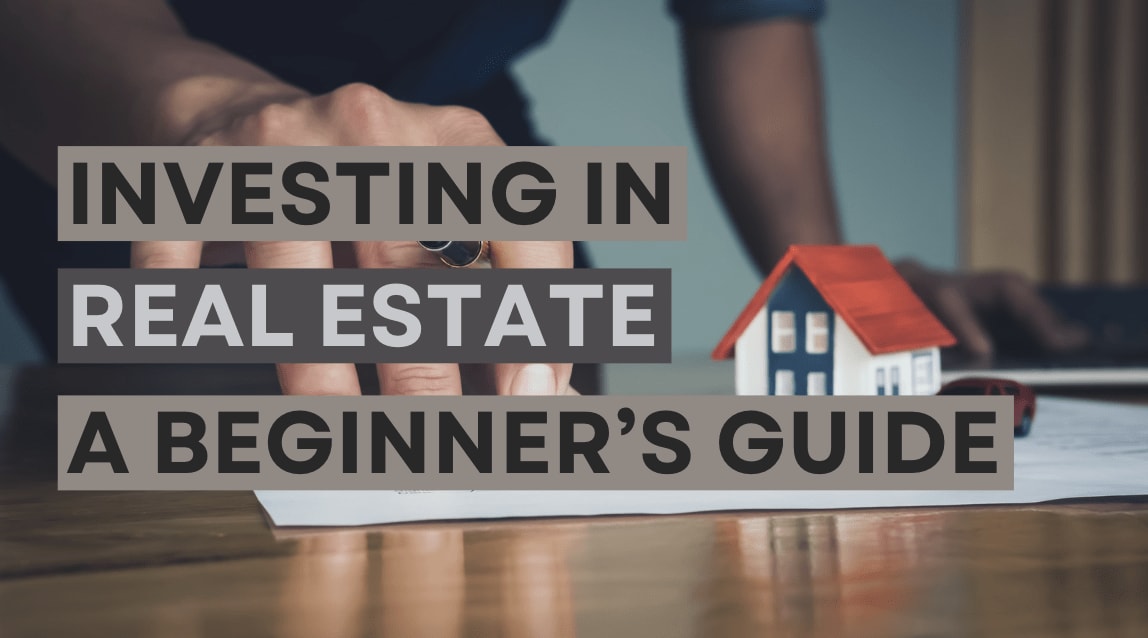Real estate Investment can be a lucrative and rewarding venture, but for beginners, it might seem like a complex world to navigate with no prior knowledge. You might have questions like, “How do I get started?” or “What should I consider before starting the investment process?”
In this beginner’s guide to real estate investment, we’ll walk you through the fundamentals, offer valuable insights, and help you take your first steps into this exciting field!
1. Understand Your Investment Goals:
Begin by defining your objectives. Make a mental list, a new note in your note section, or even a physical list on paper if you must, but having clear objectives for your goals can help set a clearer path moving forward. Are you looking for steady rental income, long-term property appreciation, or perhaps a combination of both? Knowing your investment goals will massively help you guide your decisions.
2. Research the Market:
This is an obvious one, but an entirely important beginning step of investing. Study the real estate market in the area where you plan to invest, as well as areas around where you’re searching. Analyze trends, property values, and rental rates. Understanding the local market is obviously crucial for making informed decisions, because without this knowledge you’re shooting into the dark.
3. Build a Financial Plan:
Determine how much you can afford to invest outside of your current financial profile. Consider all the factors that it would take to purchase an investment property, including, but not limited to, down payment, financing options, and ongoing expenses. Creating a sound financial plan is essential to avoid overextending yourself.
(Note: having emergency funds also set aside to become available at a moment’s notice is an important step in your financial plan)
4. Financing Options:
Explore various financing options, such as mortgages, bank loans, or partnerships with other, already established, investors. Each has its advantages and disadvantages, so exploring your options and choosing the right one that aligns with your financial plans and goals is imperative.
5. Start Small:
For beginners, it’s often wise to start with a smaller, less complex investment. Consider options like single-family homes, duplexes, or small apartment buildings before considering things like high-rises and multi-company buildings. These smaller, more manageable options, can provide a lower entry point and a better opportunity for learning than jumping in with large investments.
6. Location Matters:
The location of your investment property is crucial. Look for areas with strong growth potential, low crime rates, good schools, and amenities that attract tenants and future buyers. Looking and having a property in more desirable locations can help your investment stay positive and have a good return on investment.
7. Due Diligence:
Perform thorough due diligence before you make any sort of offers. This includes detailed and thorough inspections, title searches, and evaluating the property’s overall condition. Understanding the property’s history and potential issues is vital, you don’t want to sink a ton of money into a dud.
8. Property Management:
Consider whether you want to manage the property yourself or hire a professional property management company that has experience and expertise. Managing the property yourself can save a ton of money in the long run, but may require more time, knowledge, and effort, especially if you’re also in charge of repairs!!
9. Diversify Your Portfolio:
As you gain experience, consider diversifying your real estate portfolio by investing in different types of properties or in multiple different locations. Diversification can help spread risk and help you to earn more money.
10. Stay Informed:
The real estate market is constantly changing and evolving by the day. Staying informed by reading books, articles, and think pieces, as well as attending seminars, and networking with other investors and professionals can help you get a leg up. Continuously educating yourself will help you make more informed decisions in the future.
11. Patience is Key:
Real estate investment is a long-term game. Be patient and prepared for market fluctuations and a whole lot of other crazy that can go down in the world of real estate. Over time, real estate often appreciates, but there can be short-term volatility. We really don’t know and cannot one hundred percent predict what the market will look like or where it will head.
12. Exit Strategy:
Before investing, have an exit strategy in mind. Whether you plan to hold the property long-term, sell after a certain period of time, or use it as a source of retirement income, knowing your exit strategy or how you’re going to sell on a dime is important.
Real estate investment offers a world of opportunities for beginners willing to learn and take calculated risks. It can provide financial stability, income, and long-term growth potential. By following this beginner’s guide to becoming property savvy, and seeking advice from experienced investors, you can embark on your real estate investing journey with confidence.
Remember that, like any investment, real estate carries risks, so always conduct thorough research and due diligence before making any real decisions. You got this!



































































































